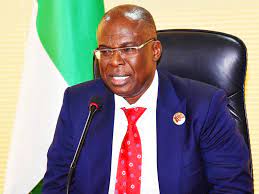The Minister of State for Petroleum Resources, Timipre Sylva says unless African countries pool their financial resources together for the improvement of necessary energy infrastructure, clean energy targets, as well as projected climate change actions, may remain elusive.
Speaking at the Nigeria-Africa Natural Resource and Energy Summit held in Abuja, Sylva said there was a need for the continent to start looking inward to develop strategies for raising investments for the purpose of achieving greener Africa without jeopardising the continent’s energy sufficiency.
Disturbed about energy poverty on the continent, the minister said it remained important that every nation and region comes up with a green initiative to foster a collective combat action against the incessant threat to the planet caused by CO2 emission.

“It should however be borne in mind that such initiatives should reflect the realities and conditions prevailing in these places, particularly the socio-economic development and energy needs.
“The key consideration in every country’s energy policy should be pivoted on energy security. This constitutes a very high priority goal for nations all over the globe. The reason is not far-fetched: Energy propels economic growth. That makes energy security synonymous with optimum and sustainable economic growth. Energy is an indispensable ingredient for human development and socio-economic prosperity. It is central to jobs creation, security, health, and other challenges facing humans,” Sylva said.
Quoting UN data, he said about 760 million people lack access to electricity worldwide, with three out of four of them living in sub-Saharan Africa.
According to him, on average, only 48 per cent of the sub-Saharan African population has access to electricity, while only 18 per cent has access to clean cooking fuels, compared with a global average of 90 per cent and 70 per cent respectively.
The implication, according to him, was that climate and sustainable development are not mutually exclusive, adding that approaches to attending to these issues should not be disconnected.
Sylva said: “Climate change is definitely of serious concern to Africa. But of equal concern is the alarming level of energy poverty. Both must be addressed in a sustainable manner. It must be a win-win situation.
“Energy transition is about providing clean energy, and not about discriminating between energy sources. In the face of the current high level of energy poverty worldwide, especially in Africa, all energy sources will be required to achieve the sustainable development goal of providing access to affordable, reliable, sustainable and modern energy for all.
“It is evident that this goal cannot be achieved by renewable energy sources alone. All available energy sources should be considered, while available technologies, like the carbon capture, utilisation and storage (CCUS), should be employed to make them cleaner.”
He maintained that oil and gas would remain important components of the global energy mix for decades to come, stressing that it would continue to be needed and essential for propelling global socio-economic development, especially in energy-poor countries, mostly in Africa, specifically sub-Saharan Africa.
“Nigeria has already made a strong commitment to embracing energy transition, pledging to significantly reduce its greenhouse gas emissions under the Paris Agreement on Climate Change. This is in addition to the commitment Nigeria made through His Excellency President Muhammadu Buhari, at COP 26 in 2021 to attain carbon net-zero by 2060.
“Nigeria is following a transition pathway that combines technology, investment, business strategies, and government policy that will enable Nigeria to transit from its current energy system to a low-carbon energy system with natural gas playing a pivotal role,” he said.

